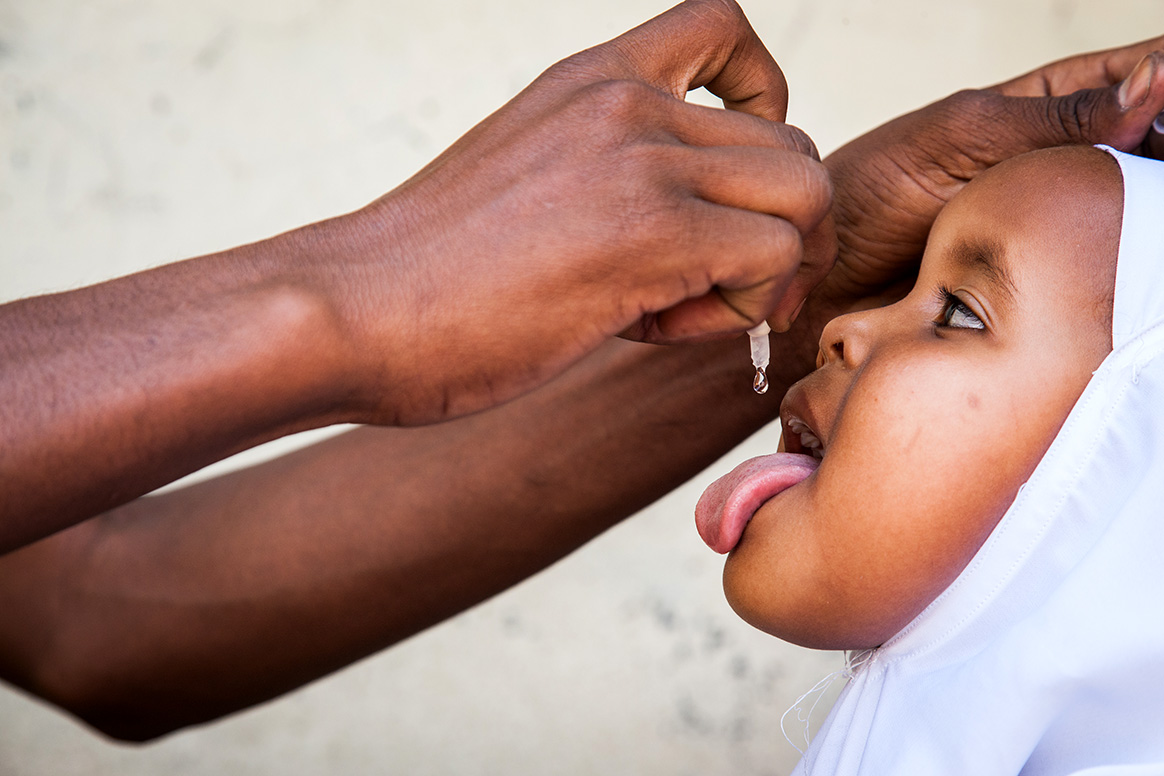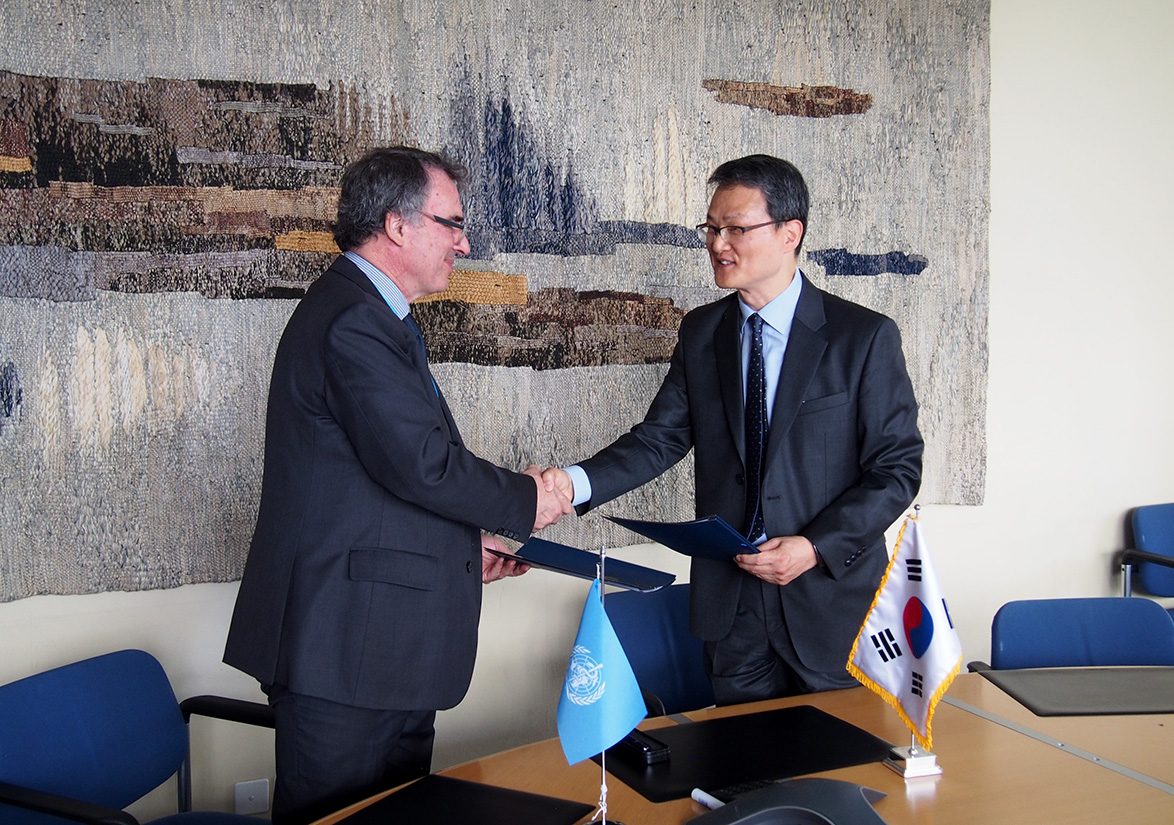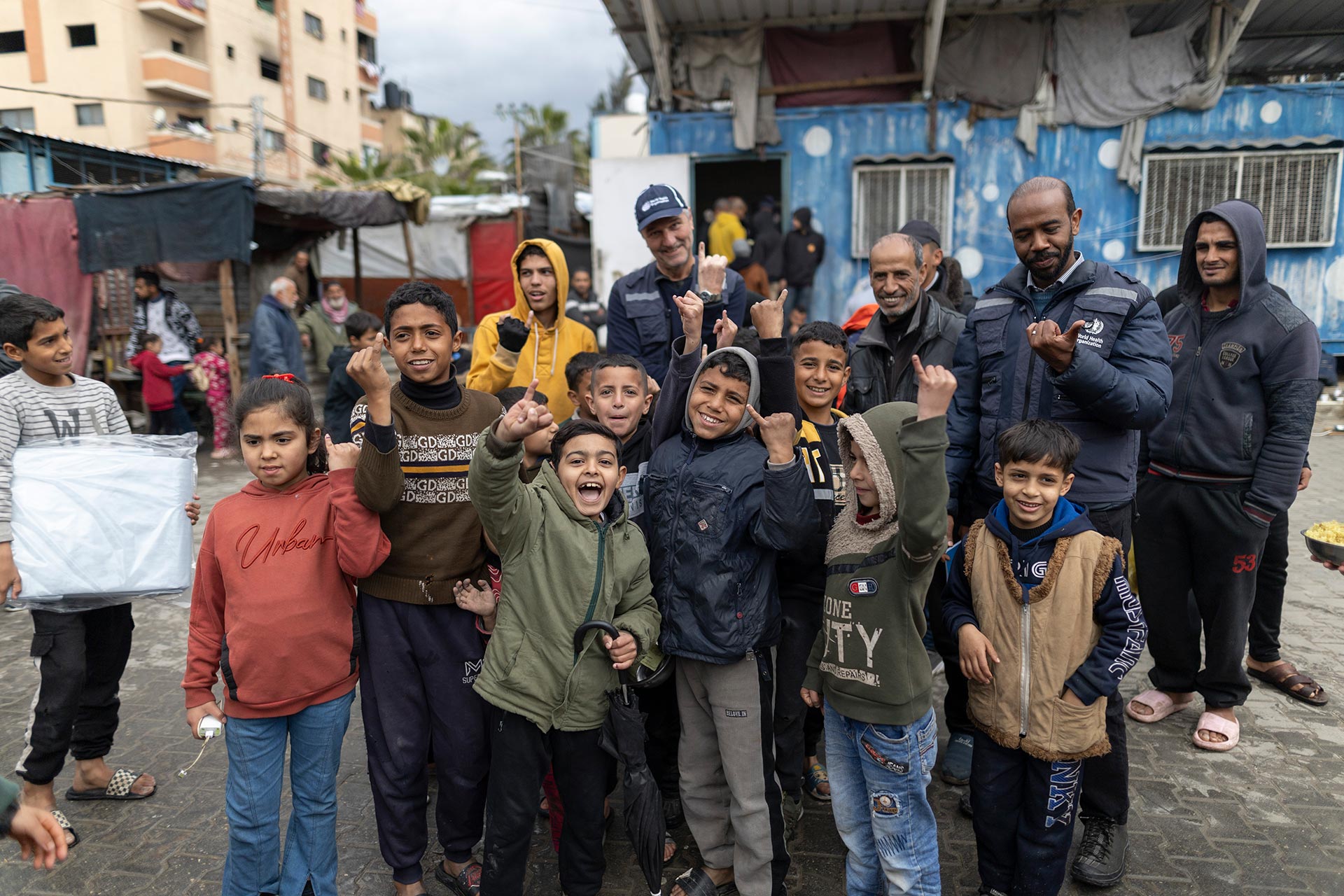
21 June 2018 – The Ministry of Foreign Affairs of the Republic of Korea announced today an additional US$ 2 million to fund polio outbreak response and surveillance activities in the Horn of Africa. This commitment makes Korea the first country to support outbreak response efforts in the region, critical to protecting global progress toward ending polio.
The Global Polio Eradication Initiative (GPEI) welcomed the contribution, with $1.5 million for UNICEF and $0.5 million for WHO.
This funding was raised through an innovative financing mechanism called the Global Disease Eradication Fund, through which KRW₩1,000 was collected from each international passenger flying out of Korean airports by the Government of Korea. Thanks to this Fund, every passenger flying from Korea directly supports global efforts to stop polio, an infectious disease that can lead to paralysis or even death, and can travel long distances undetected.
When the GPEI first began in 1988, polio paralysed more than 350,000 children each year in over 125 countries in the world. Today, there have only been eight cases to date in 2018, and polio is closer than ever to becoming the second human disease to ever be eradicated.
This progress is made possible through the ongoing support of donors, partners, and countless health workers around the world. Contributions from donors like Korea allow the GPEI to vaccinate and protect more than 450 million children against polio each year.
This additional funding follows a US$ 4 million commitment from the Republic of Korea announced at the Global Polio Pledging Event around the Rotary International Convention in June 2017. This contribution was matched by the Bill & Melinda Gates Foundation, doubling its impact to US$ 8 million.
“The Global Disease Eradication Fund is an incredibly innovative financing mechanism, and the funds raised will support UNICEF’s efforts to protect every last child from polio,” said Akhil Iyer, UNICEF Director of Polio Eradication. “We remain grateful to the Republic of Korea for their continued commitment to halting polio outbreaks and driving progress to eradicating polio once and for all.”
“The unique support of the Republic of Korea has been crucial for the remarkable progress we have made in polio eradication, especially in responding to outbreaks,” said Dr Michel Zaffran, Director of the Polio Eradication Programme at the World Health Organization. “These additional funds come at a critical time as we support the outbreak response in the Horn of Africa region by scaling up surveillance to ensure no virus goes undetected.”
The Republic of Korea has been a longtime supporter of the GPEI, contributing to outbreak response efforts in Syria, the Democratic Republic of Congo and the Lake Chad region, with a broad range of activities including delivering polio vaccines, intensifying surveillance, and convincing caregivers to vaccinate their children through community engagement.
Generous support from donors like the Republic of Korea remains essential to stopping outbreaks, ending this paralysing disease and ultimately achieving a polio-free world.




